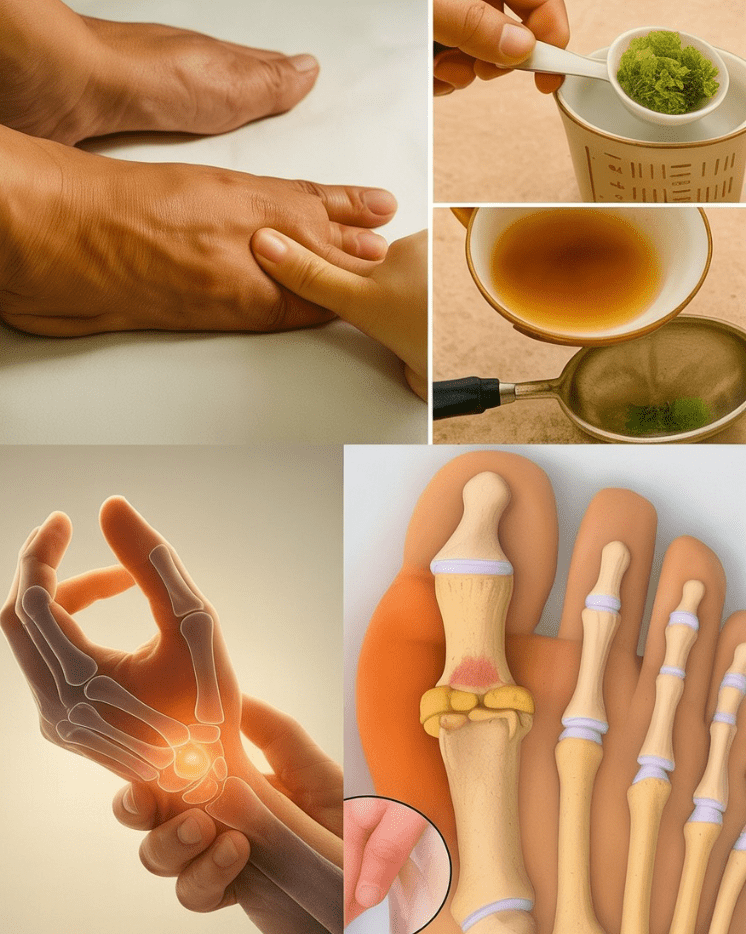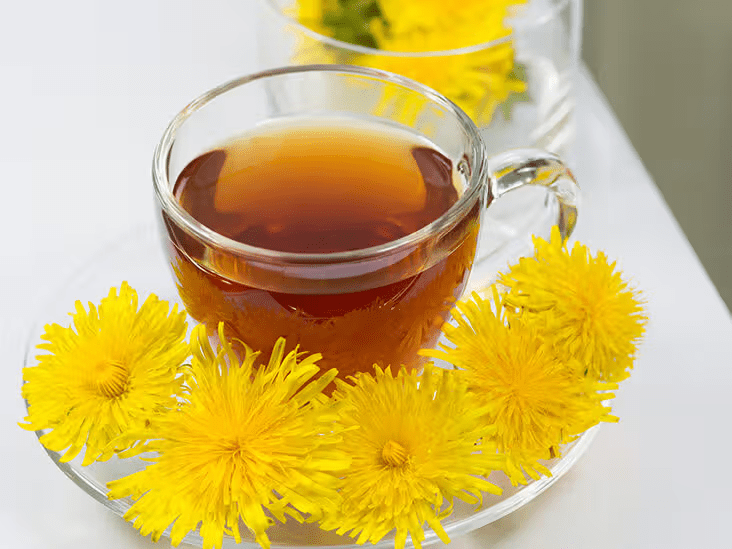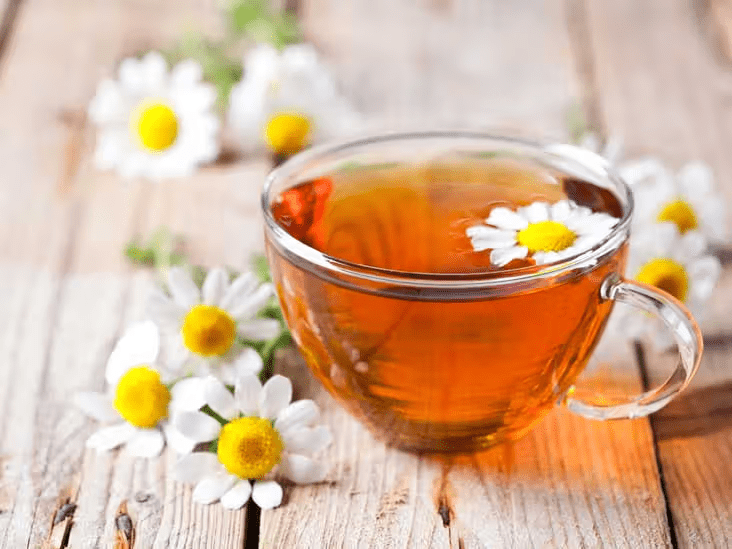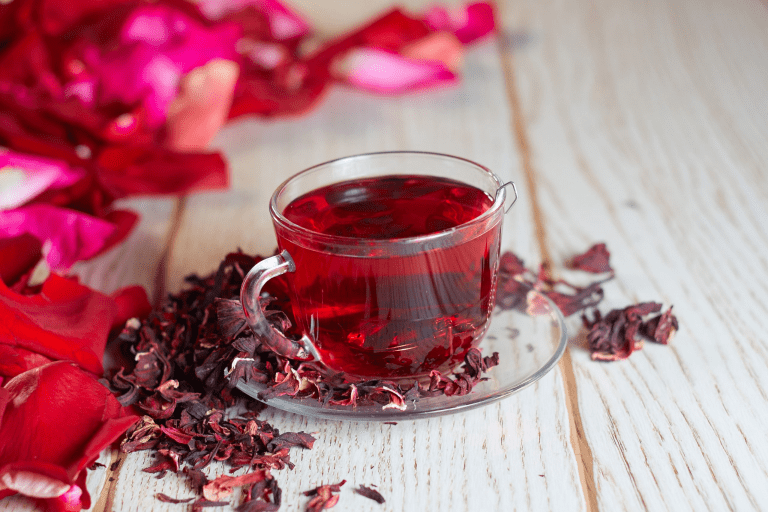Have you ever slipped off your shoes after a long day only to find your ankles swollen and your feet puffy? You’re not alone—over 30% of adults experience swelling in their legs and ankles, known as edema, at some point. Whether caused by long hours of standing, salty meals, or hormonal shifts, this discomfort can weigh you down. Thankfully, nature offers a gentle solution: herbal teas. For centuries, herbs like dandelion, ginger, and hibiscus have been used to support circulation and reduce fluid buildup. In this guide, you’ll discover six herbal teas that may help ease swollen legs, how to prepare them, and lifestyle tips to amplify their effects. Ready to find relief with a soothing cup? Let’s explore these time-tested remedies!

Understanding Swollen Legs and Ankles
Swelling in the legs and ankles, or edema, occurs when excess fluid gets trapped in tissues. It’s often temporary but can be uncomfortable. Knowing the causes helps you address it effectively.
Common Causes of Edema
- Prolonged Sitting or Standing: Long periods without movement cause fluid to pool in the lower extremities.
- High Sodium Intake: Salty foods lead to water retention, worsening swelling.
- Hormonal Changes: Pregnancy, menstruation, or menopause can trigger fluid buildup.
- Hot Weather: Heat dilates blood vessels, increasing fluid leakage into tissues.
- Medical Conditions: Heart, kidney, or circulatory issues can contribute to chronic edema.
A 2022 study in the Journal of Vascular Nursing noted that lifestyle factors like inactivity and diet are major contributors to non-medical edema, affecting millions globally.
Why Herbal Teas?
Herbal teas offer diuretic, anti-inflammatory, and circulation-boosting properties. They’re natural, affordable, and easy to incorporate into daily routines, providing a gentle way to support fluid balance and comfort.

How Herbal Teas Help Reduce Swelling
Herbal teas work through various mechanisms to alleviate edema and promote leg health. Here’s how they make a difference.
Mild Diuretic Effect
Certain herbs, like dandelion and parsley, encourage the kidneys to release excess fluid through urine, reducing swelling. A 2020 review in Phytotherapy Research confirmed dandelion’s diuretic properties without depleting potassium.
Anti-Inflammatory Support
Herbs like ginger and chamomile contain compounds that reduce tissue inflammation, easing puffiness. Gingerol in ginger, for instance, was shown in a 2019 study in Nutrients to lower inflammation markers.
Improved Circulation
Warming herbs like ginger stimulate blood flow, preventing fluid from pooling in the legs. This supports vascular health and reduces heaviness.
Stress and Sleep Support
Stress and poor sleep can exacerbate swelling by increasing cortisol levels. Calming teas like chamomile promote relaxation, indirectly aiding fluid balance.
6 Herbal Teas for Swollen Legs and Ankles

These six herbal teas, rooted in tradition and supported by science, can help ease swelling and restore comfort to your legs.
1. Dandelion Tea
Dandelion acts as a natural diuretic, helping the body flush excess water while maintaining potassium levels.
- Benefits: Reduces fluid retention, supports kidney function.
- Flavor: Earthy, slightly bitter.
- Best Time: Morning or afternoon.
A 2021 study in the Journal of Alternative and Complementary Medicine found dandelion leaf tea increased urine output in healthy adults.
2. Ginger Tea
Ginger’s gingerol boosts circulation and reduces inflammation, helping fluid move through tissues.
- Benefits: Enhances blood flow, soothes puffiness.
- Flavor: Warm, spicy, pairs well with lemon.
- Best Time: Morning for an energizing start.
Research from 2020 in Food Science & Nutrition confirmed ginger’s role in improving circulation and reducing swelling.
3. Parsley Tea
Parsley is a potent diuretic that helps flush sodium, a key cause of water retention.
- Benefits: Reduces bloating, supports fluid balance.
- Flavor: Fresh, slightly grassy, blends well with mint.
- Best Time: Afternoon for a refreshing lift.
A 2018 study in the Journal of Ethnopharmacology noted parsley’s diuretic effects in animal models.
4. Chamomile Tea
Chamomile’s calming properties reduce stress-related inflammation and promote restful sleep, easing nighttime swelling.
- Benefits: Relaxes the body, reduces puffiness.
- Flavor: Mild, floral, apple-like.
- Best Time: Evening for relaxation.
A 2021 review in Phytomedicine highlighted chamomile’s anti-inflammatory and calming effects.
5. Green Tea
Green tea’s antioxidants, like catechins, support blood vessel health and offer a mild diuretic effect.
- Benefits: Strengthens veins, reduces fluid retention.
- Flavor: Light, slightly grassy.
- Best Time: Morning or early afternoon to avoid caffeine at night.
A 2020 study in Nutrients found green tea improved vascular function in healthy adults.
6. Hibiscus Tea

Hibiscus, rich in vitamin C and antioxidants, supports kidney health and fluid regulation.
- Benefits: Promotes fluid balance, boosts immunity.
- Flavor: Tart, cranberry-like, great iced.
- Best Time: Anytime, hot or cold.
A 2019 study in the Journal of Herbal Medicine showed hibiscus tea increased urine output and reduced blood pressure.
Quick Reference Table
| Herbal Tea | Main Benefit | Best Time to Drink |
|---|---|---|
| Dandelion | Diuretic, fluid release | Morning or afternoon |
| Ginger | Circulation, anti-inflammatory | Morning |
| Parsley | Flushes sodium, diuretic | Afternoon |
| Chamomile | Relaxation, reduces stress swelling | Evening |
| Green Tea | Antioxidants, mild diuretic | Morning or early afternoon |
| Hibiscus | Vitamin C, fluid regulation | Anytime, hot or iced |
How to Prepare Herbal Tea for Swelling
Making these teas is simple and requires minimal ingredients. Here’s a universal recipe for one serving.
Ingredients
| Ingredient | Quantity | Notes |
|---|---|---|
| Dried herb (or teabag) | 1 tsp (or 1 teabag) | Use high-quality, organic if possible |
| Hot water | 1 cup (240 ml) | Just below boiling, around 190°F (88°C) |
| Honey or lemon | Optional | For flavor enhancement |
Preparation Steps
- Boil Water: Heat 1 cup of water to just below boiling.
- Add Herb: Place 1 teaspoon of dried herb or one teabag in a cup.
- Steep: Pour hot water over the herb and steep for 5–10 minutes (check herb-specific times).
- Strain: Remove the herb or teabag.
- Enhance (Optional): Add a teaspoon of honey or a squeeze of lemon for flavor.
- Sip: Drink warm for relaxation or cool over ice for refreshment.
- Frequency: Consume 1–2 cups daily, preferably morning or afternoon for diuretics.
Preparation Tips
- Fresh vs. Dried: Fresh herbs like ginger or parsley offer stronger flavor; dried work well too.
- Combine Herbs: Try ginger with hibiscus or parsley with mint for enhanced effects and taste.
- Avoid Oversteeping: Too long can make teas bitter, especially green tea or dandelion.
- Store Properly: Keep dried herbs in airtight containers to maintain potency.
Lifestyle Tips to Reduce Swelling
Herbal teas work best when paired with healthy habits to prevent and manage edema.
- Elevate Legs: Raise legs above heart level for 20 minutes daily to reduce fluid pooling.
- Stay Active: Walk, stretch, or do yoga for 30 minutes daily to boost circulation.
- Reduce Salt: Limit sodium to 2,300 mg daily, as excess salt causes water retention.
- Wear Compression Socks: These improve blood flow and reduce swelling, especially for frequent edema.
- Stay Hydrated: Drink 8–10 glasses of water daily to help the body flush excess fluid.
- Manage Stress: Practice deep breathing or meditation to lower cortisol, which can worsen swelling.
Real-Life Success Story
Clara, a 42-year-old office worker, noticed her ankles swelling after long days at her desk. Frustrated with tight shoes and discomfort, she started drinking dandelion tea twice daily and elevating her legs each evening. Within a week, she felt lighter, and her swelling reduced noticeably. “The tea was so easy to make, and I felt refreshed,” she shared. Clara also cut back on salty snacks, which amplified the results. Her experience aligns with a 2021 study in the Journal of Clinical Medicine, showing diuretics like dandelion tea effectively reduce mild edema when combined with lifestyle changes.
Precautions and Safety Considerations
While herbal teas are generally safe, they require caution for certain groups:
- Consult a Doctor: If you have kidney, heart, or liver issues, seek medical advice before using diuretic teas.
- Allergies: Test for sensitivities to herbs like chamomile, which may cause reactions in ragweed-allergic individuals.
- Medications: Diuretic teas like dandelion or parsley may interact with diuretics or blood thinners.
- Pregnancy/Breastfeeding: Avoid diuretic teas unless approved by a healthcare provider, as they may affect fluid balance.
Who Should Avoid These Teas?
| Condition/Group | Reason |
|---|---|
| Kidney/Heart Conditions | Diuretics may strain organs |
| Pregnant/Breastfeeding Women | Potential fluid balance issues |
| Medication Users | Risk of interactions with diuretics |
Why Choose Herbal Teas?
Herbal teas are a natural, affordable alternative to over-the-counter diuretics or supplements. They’re:
- Gentle: Free from harsh chemicals, with minimal side effects when used in moderation.
- Sustainable: Use simple, eco-friendly ingredients.
- Versatile: Enjoy hot or iced, alone or blended for taste and benefits.
- Rooted in Tradition: Backed by centuries of use and modern research.
These teas offer a soothing ritual that supports both body and mind.
FAQs About Herbal Teas for Swollen Legs
Can I drink these teas daily? Yes, 1–2 cups daily is safe for most, but avoid excessive intake to prevent dehydration. How soon will I see results? Some notice reduced swelling within a few days; consistent use over 1–2 weeks yields best results. Are these teas safe for everyone? Not always. Pregnant women, those with kidney issues, or on medications should consult a doctor. Which tea works fastest for swelling? Dandelion and parsley are often fastest due to their strong diuretic effects. Can I mix different teas? Yes, blends like ginger with hibiscus or parsley with mint enhance flavor and benefits.
Conclusion
Swollen legs and ankles can be uncomfortable, but herbal teas like dandelion, ginger, parsley, chamomile, green tea, and hibiscus offer a natural way to find relief. These time-tested remedies support fluid balance, circulation, and relaxation. Combine them with leg elevation, a low-salt diet, and gentle exercise for lasting comfort. Always consult a healthcare professional for persistent or severe swelling. Note: This content is for informational purposes only and does not replace professional medical advice. Ready to sip your way to lighter legs? Visit our website for more wellness tips!




